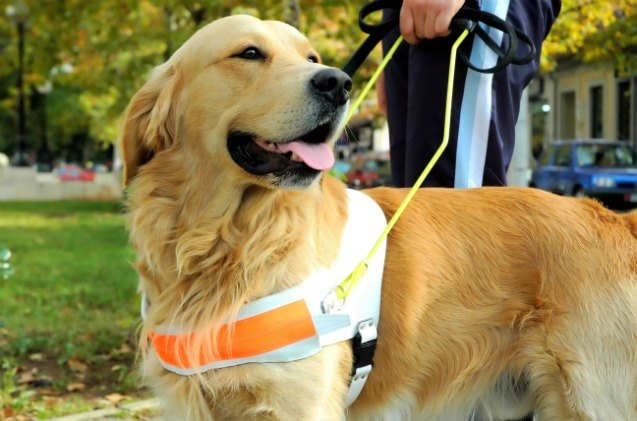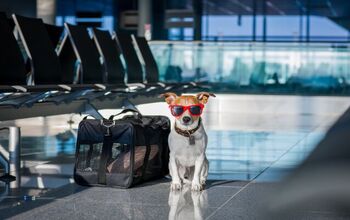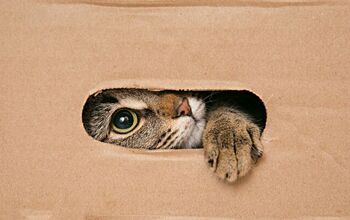Study: Canine Helicopter-Moms Raise Guide Dog Dropouts

A new study from researchers at the University of Pennsylvania has found that pups who are ‘coddled’ by their mothers are more likely to fail out of guide dog training. That’s right…if a puppy doesn’t make the cut in guide dog school, it’ll have the scientific background to blame its poor over-nurturing mother!
Lead author of the study Emily Bray says that puppies need mothering, but it turns out that puppies whose mothers have more of a ‘paws off’ approach with their young ones turn out to be the better fit to pass guide dog training swimmingly.
Related: New Device Allows The Blind To Monitor Their Guide Dog
Ninety-eight puppies were followed from their birth to adulthood. The researchers found that puppies who were beneficiaries of ‘more intense’ training early in life had a higher likelihood of failing out of training programs. More, where mothers nursed in ways that puppies had to exert greater effort to get milk? Those puppies typically were more successful in obedience and training than their counterparts who didn’t have to work so hard.
The team also found that puppies who had more involvement from their mothers seemed to have less skilled problem-solving ability, perseverance and even exhibited more anxiety when in new situations than those whose mothers did not have as much involvement.
The study watched puppies who were kept in kiddie pools lined with towels and decided that the more involved mothers were the ones who tended to be in the pool with the puppies, licking them and grooming with them. The less involved mothers seemed to have a more stand-back approach, spending less time in the pool with their puppies and exhibiting less interaction.
And while you might think, “But the ones whose mothers took an active interest in their pups should be better adjusted!” (and you may be right), it’s important for a guide dog to have little anxiety, excellent problem-solving ability and most importantly, obedience and perseverance.
The Seeing Eye
They found that dogs whose mothers sat or stood while nursing actually encouraged their pups to work harder for what they wanted (milk) than compared to those whose mothers lay for their puppies to nurse. The puppies who had to work for their food were more likely to complete the guide dog training successfully.
Related: B.C. Lawmakers Crack Down On Guide Dog Impersonators
The Seeing EyeBray believes the ‘challenges’ of early self-sufficiency may better prepare the puppies for the work they’ll have to do as guide dogs and lends itself to getting puppies used to such challenges. She also considers that often dogs bred to be guide dogs are from high-performing breeds, sort of the cream of crops. Genetically, some dogs simply may be pre-dispositioned to breed a puppy that is better suited to perform successfully in a training program. She said that to truly test that theory, the puppies would need to be swapped so that true mothering style could be measured.
For now, though, as it’s important to have just the right skill set to be a guide dog, this information can help those who are looking to breed and train guide dogs, particularly as they look for authentic trainees.
And proves a powerful lesson for those of us with children as well–a little-controlled grit never does anything but build character!
[Source: NPR]

More by Lori Ennis

























